Your search “Keep%20ethe%20eDeath%20ePenalty%abolished%20ein%20ethe%20ePhilippfines%20e%20e%20e%20e%20e%20e%20e%20e%20e%20e/page/com16501.content.olc.org/com/ref/collection/criminal/did/154 ”
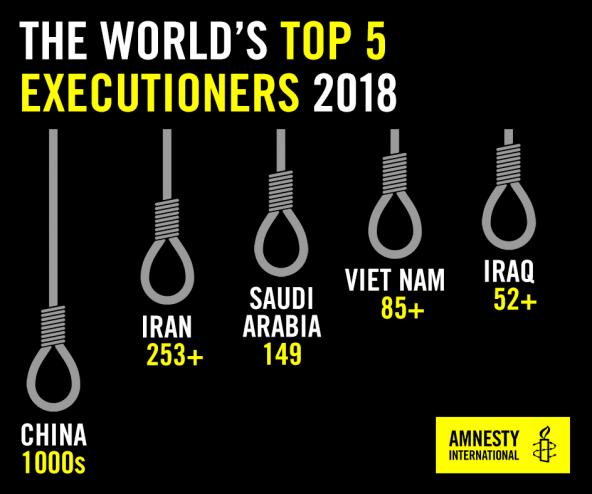
Article(s)
Death penalty 2018: Dramatic fall in global executions
By Amnesty International, on 10 April 2019
Despite a rise in executions in some countries, global executions fell by 31% in 2018. The universal fight for the abolition of the death penalty seems to be on the right way.
2019
Article(s)
Teaching abolition in Taiwan
on 9 December 2009
Tsou Tzung Han is a Taiwanese teacher who actively took part in educational activities organised around World Day Against the Death Penalty. He writes about his experience with his students.
2009
Public Opinion
Taiwan
Taiwan
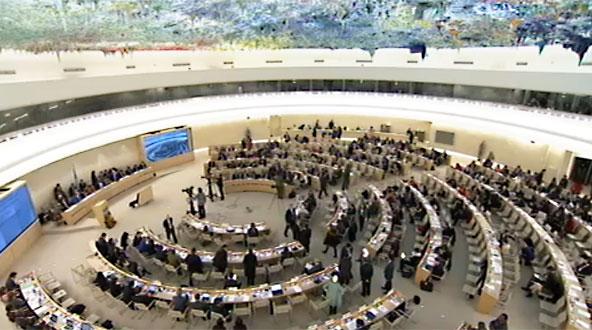
Article(s)
Death penalty: UN General Assembly human rights committee renews call for a moratorium on executions
By Amnesty International, on 23 November 2016
Today the overwhelming majority of UN member states once again threw their weight behind a UN General Assembly draft resolution to establish a moratorium on executions with a view to abolishing the death penalty. 115 of the UN’s 193 member states voted in favour of the proposal, with only 38 voting against it. The draft will now go before the UN General Assembly plenary for final adoption.
2016
Moratorium
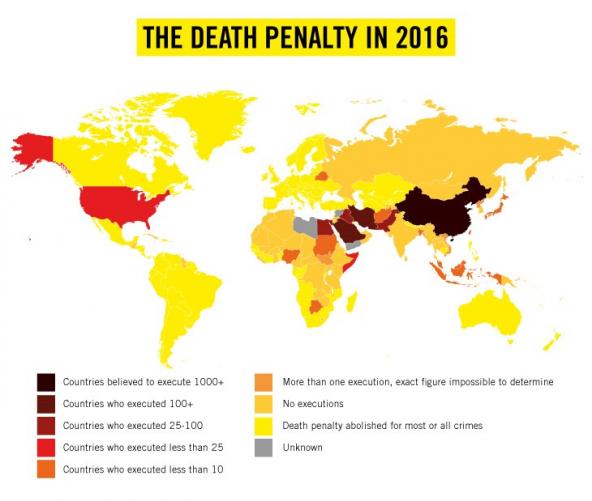
Article(s)
Death Sentences and Executions in 2016
By Amnesty International, on 11 April 2017
Amnesty International published its 2016 global review of the death penalty on Tuesday, April 11th 2017.Excluding China, states around the world executed 1,032 people in 2016. China executed more than all other countries in the world put together, while the USA reached a historic low in its use of the death penalty in 2016.
2017
Article(s)
The death penalty at the heart of ACHPR debates
on 18 May 2012
The 51st Ordinary Session of the African Commission on Human and Peoples’ Rights (ACHPR) was held in Banjul from April 18 to May 2, 2012. During the session, the Commission presented its “Study on the question of the death penalty in Africa” prepared by the Working Group on the death penalty of the ACHPR.
2012
Angola
Burundi
Gabon
Moratorium
Rwanda
Somalia
South Sudan
Sudan
Togo
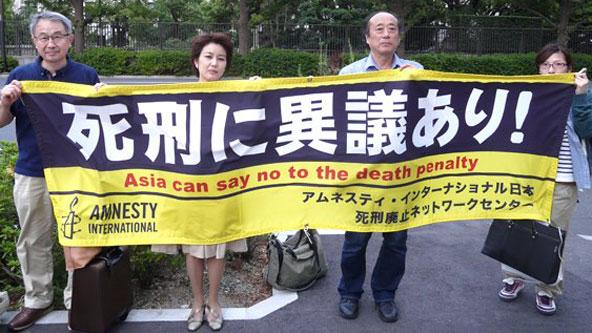
Article(s)
ADPAN network keeps up abolitionist fight
By Anti-Death Penalty Asian Network (ADPAN), on 10 October 2012
The Anti-Death Penalty Asia Network, which was founded on 10 October 2006, is again taking action this World Day Against the Death Penalty and takes stock on 10 years of progress in Asia – and on the challenges ahead.
2012
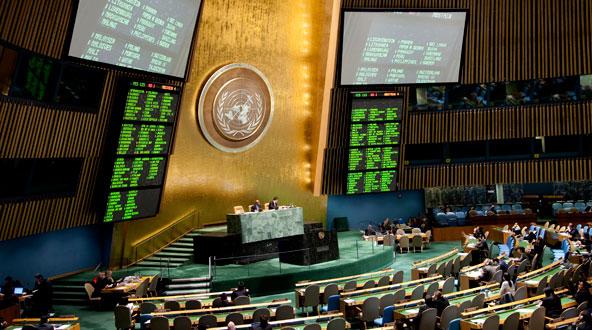
Article(s)
Death penalty: Global abolition closer than ever as record number of countries vote to end executions
By Amnesty International, on 17 December 2018
A record number of States – 121 out of 193 member states – voted in favour of a moratorium on the death penalty at the United Nations General Assembly on December the 17th. A world without the death penalty may become a reality according to Chiara Sangiorgio, Amnesty International’s Death Penalty Expert.
2018
Moratorium
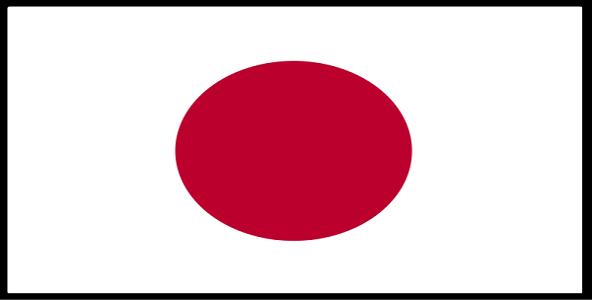
Article(s)
Joint statement of the death penalty in Japan
By Center for Prisoners' Rights and Japan Innocence & Death Penalty Information Center, on 30 March 2018
Joint Statement signed by Center for Prisoners’ Rights and Japan Innocence & Death Penalty Information Center to to call Japanese government for a sincere dialogue while condemning the government for refusing a dialogue with international communityand not accepting capital punishment as a human rights issue.
2018
Japan
Article(s)
US activists turn spotlight on executed innocent man
on 28 September 2009
An official report and a feature in the New Yorker have confirmed that Todd Willingham was not guilty of the arson for which he was executed. Abolitionist campaigners are now targeting his case.
2009
Innocence
United States
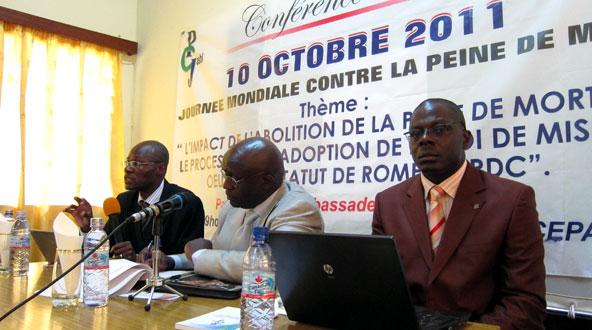
Article(s)
The death penalty and the situation in Africa debated in Kinshasa
on 17 October 2011
A debate led by members of the World Coalition in the Democratic Republic of Congo discussed international law, local sensitivities and abolition.
2011
Democratic Republic of the Congo
Fair Trial
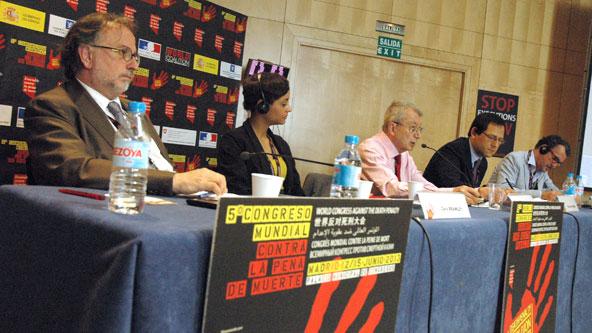
Article(s)
Two perspectives on assistance to foreign nationals facing the death penalty
By Thomas Hubert, on 13 June 2013
World Coalition member Reprieve and the Mexican government share their experience of helping those facing a capital case overseas.
2013
Legal Representation
Mexico
United States
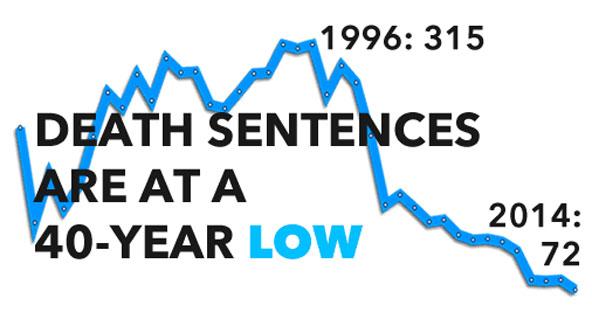
Article(s)
Fewest death sentences in 40 years in the US
By Death Penalty Information Center, on 12 January 2015
The number of executions in the United States was at its lowest in 20 years and seven death row prisoners were exonerated in 2014.
2015
Intellectual Disability
Mental Illness
United States
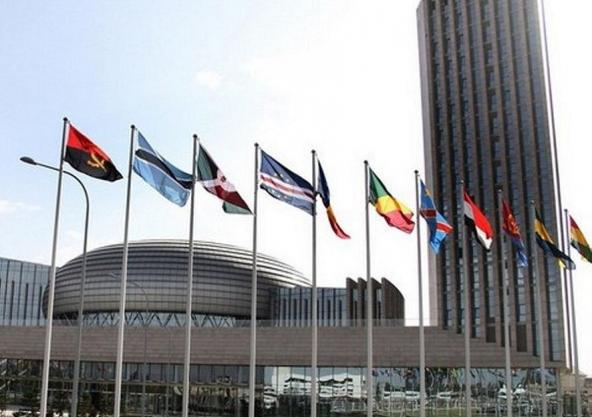
Article(s)
Awareness Building Workshop with African Union Members
By Bronwyn Dudley, on 14 May 2019
The end of March saw a first of its kind awareness-building workshop in Addis-Ababa, Ethiopia for the permanent French-speaking members to the African Union. Moderated by the ACHPR’s Working Group on the Death Penalty and Extrajudicial, Summary of Arbitrary Killings in Africa in close collaboration with FIACAT, the World Coalition and the Organisation International de la Francophonie (OIF), the training focused on raising awareness of the Draft Protocol on the Abolition of the Death Penalty.
2019
Document(s)
Estimating the effect of death penalty moratoriums on homicide rates using the synthetic control method
By Stephen N. Oliphant, on 18 September 2022
2022
Academic report
Moratorium
United States
More details See the document
Research examining death penalty deterrence has been characterized as inconclusive and uninformative. The present analysis heeds a recommendation from prior research to examine single-state changes in death penalty policy using the synthetic control method. Data from the years 1979–2019 were used to construct synthetic controls and estimate the effects of death penalty moratoriums on homicide rates in Illinois, New Jersey, Washington, and Pennsylvania. Moratoriums on capital punishment resulted in nonsignificant homicide reductions in all four states.
- Document type Academic report
- Countries list United States
- Themes list Moratorium
Article(s)
Petition against the Death Penalty
By World Coalition Against the Death Penalty, on 1 October 2011
139 nations have already abolished the death penalty. In December 2012, the United Nations’ General Assembly will vote on a resolution calling for a worldwide halt to its use. We, the undersigned, in recognition of the five million people who signed the moratorium petition that was handed to the United Nations’ General Assembly in […]
2011

Article(s)
Community of Sant’Egidio Calls for Universal Abolition with Cities for Life, Cities Against the Death Penalty
By Louis Linel, on 8 December 2020
The discussion was chaired by Mario Marazitti, who stood in front of broadcasted live images of the light-draped Colosseum in Rome, Italy, displaying the slogan of this international key event, “No Justice Without Life”.
2020
Italy
Malaysia
Public Opinion
United States
Article(s)
US Supreme Court revives “failed” death penalty
on 17 April 2008
The World Coalition condemns the April 16th decision of the United States Supreme Court upholding the lethal injection as a humane method of executing a human being.
2008
Moratorium
United States

Article(s)
How to work with international bodies?
By Maria Donatelli, on 10 June 2013
The World Coalition is taking part in a workshop on mutual work relationships between international organisations and civil society at the 5th World Congress Against the Death Penalty. Here are tips for activists who would like to work with UN and regional bodies.
2013
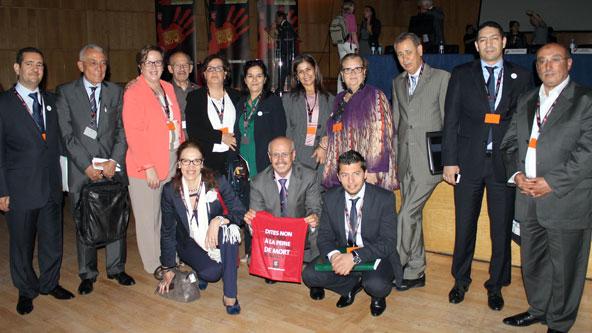
Article(s)
North Africa and Middle East between progress and frustrations
By Thomas Hubert, on 13 June 2013
Shaken up by revolutions and conflicts, the southern shores of the Mediterranean are more than ever enticed for abolition – but opposition is fierce.
2013
Algeria
Lebanon
Morocco
Spain
Tunisia
Document(s)
Singapore’s death penalty for drug trafficking: What the research says and doesn’t
By Academia SG - Promoting Scorlorahsip Of/For/By Singapore, on 24 January 2024
2024
Academic report
Drug Offenses
Singapore
More details See the document
Published on October 7, 2023.
Of all retentionist countries, Singapore seems to be the most vocal about the need to execute individuals as a form of criminal punishment. MAI SATO (Monash University) reviews studies conducted or commissioned by Singapore’s Ministry of Home Affairs that claim public backing for and the effectiveness of the death penalty in managing drug trafficking. Sato finds that these studies provide far weaker evidence for using the death penalty for drug trafficking than their authors and officials citing them claim.
- Document type Academic report
- Countries list Singapore
- Themes list Drug Offenses
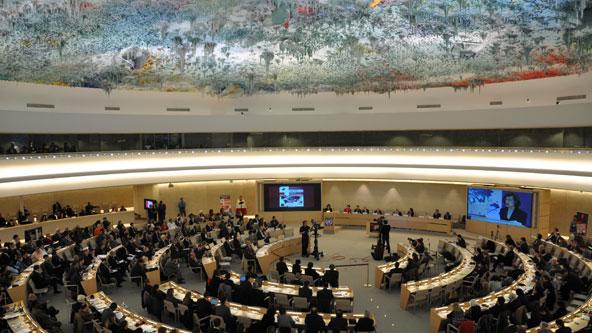
Article(s)
Discussion at the Human Rights Council of human rights violations related to the use of the death penalty
By Jessica Corredor, on 7 March 2017
From Zeid Ra’ad Al Hussein, United Nations High Commissioner for Human Rights, to abolitionist and retentionist government representatives and World Coalition members, participants to the Biennial high-level discussion on death penalty exchanged views in order to address human rights violations related to the use of the death penalty, in particular with respect to the prohibition of torture.
2017
Cruel, Inhuman and Degrading Treatment and Punishment

Article(s)
The death penalty in the DRC: an illusory means of combating impunity in the face of human rights implementation
By Mr Olivier LUNGWE FATAKI of Pax Christi Uvira, absl, on 30 August 2024
The Democratic Republic of the Congo (DRC) is one of the States which has retained the death penalty in its legal arsenal, although applies a de facto moratorium on executions since 2003.
2024
Democratic Republic of the Congo
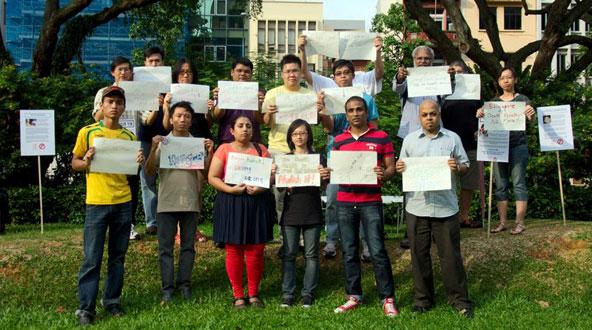
Article(s)
Migrant workers facing capital punishment show need for alternative sentences
By Think Centre, on 26 April 2012
Four Singapore-based organisations denounce the high risk of miscarriage of justice in recent death sentences handed down on poor immigrants and calls for the abolition of the death penalty in the city-state.
2012
Cruel, Inhuman and Degrading Treatment and Punishment
Moratorium
Singapore

Article(s)
Progress and impediments on path to abolition in U.S.
By Russ Feingold & Christopher Wright Durocher, on 3 April 2024
When President Biden won the 2020 election, he became the first successful U.S. presidential candidate to publicly oppose the death penalty.
2024
United States
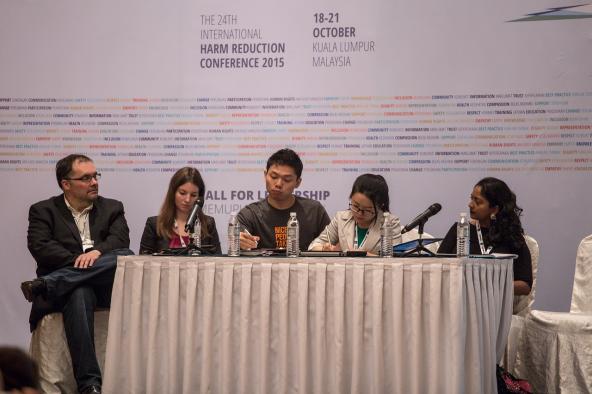
Article(s)
The death penalty for drugs must go, it has no place in a civilised society
By Aurélie Plaçais, on 21 October 2015
Those were the words of Anand Grover, former UN Special Rapporteur on the right to health during the opening ceremony of Harm Reduction International’s 24th conference in Kuala Lumpur, Malaysia.
2015
China
Drug Offenses
India
Indonesia
Malaysia

Article(s)
Working with journalists to expose the death penalty’s flaws
By World Coalition Against the Death Penalty, on 30 June 2014
Journalists and activists held a joint practical workshop during the World Coalition’s recent AGM in Puerto Rico to discuss ways of getting the abolitionist message across in the media.
2014
Public Opinion
Puerto Rico
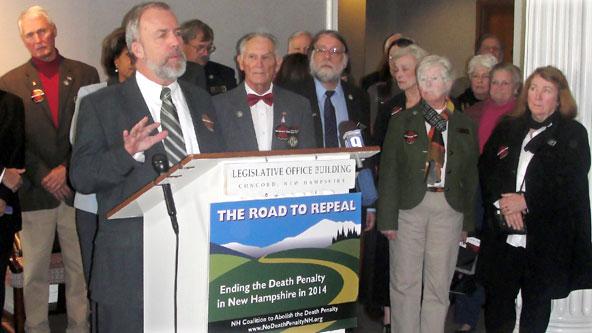
Article(s)
New conservative voices crucial in New Hampshire repeal campaign
By Thomas Hubert, on 26 February 2014
After a House committee passed a bill abolishing capital punishment on 11 February, State representative Renny Cushing explains the next steps as the World Coalition’s Steering Committee prepares to meet in New Hampshire in April.
2014
United States
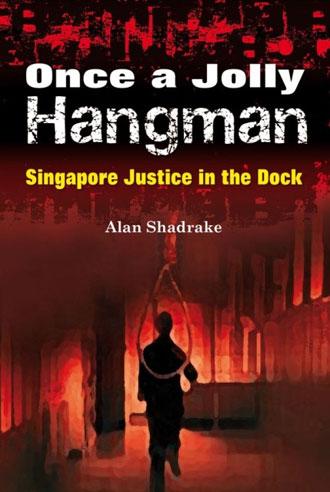
Article(s)
Singapore arrests writer over death penalty book
on 20 July 2010
The British author of a book on Singapore’s death penalty is facing prosecution for criticizing the massive use of capital punishment in the Asian city-state.
2010
Drug Offenses
Singapore
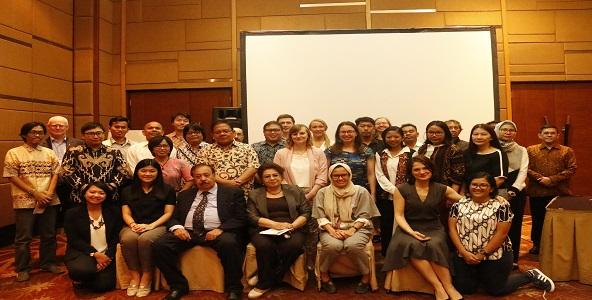
Article(s)
Dialogue on the death penalty during the 20th anniversary of the Reformasi
By Clémentine Etienne, on 27 June 2018
20 years after the end of the dictatorship, Indonesia is going through a period of legal changes and transition. What impact can abolitionist associations and NGOs working on the ground have in encouraging the actions of legal counsellors and civil society?
2018
Indonesia
Article(s)
Call for interns
By Project 39A, on 14 June 2018
Project 39A offers a minimum of four-week long internships to students of law and related fields.
2018
India
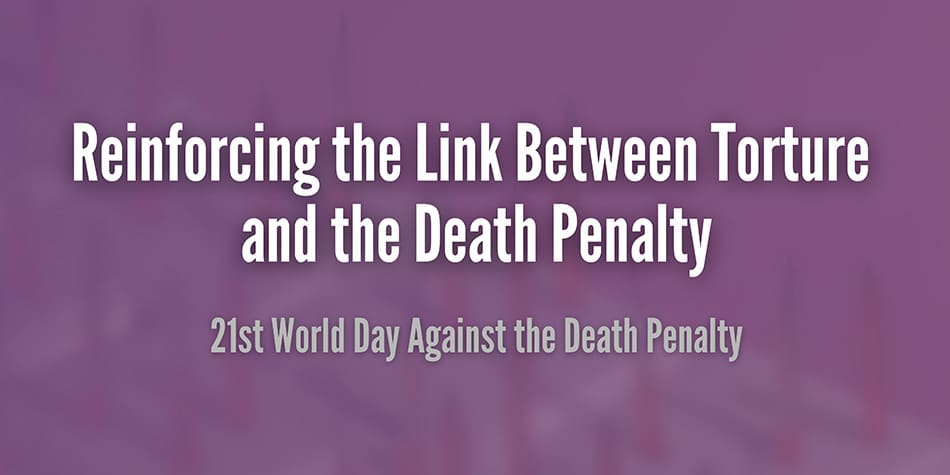
Article(s)
Reinforcing the Link Between Torture and the Death Penalty: 21st World Day Against the Death Penalty
By Venus Aves, on 17 November 2023
“There is no way in today’s world to apply the death penalty in a legal way, in a way that does not violate international law.” This was the bold and unequivocal assertion of former UN Special Rapporteur on Torture Juan Méndez in an online discussion with UN experts and exonerees organized by the World Coalition […]
2023
Cruel, Inhuman and Degrading Treatment and Punishment
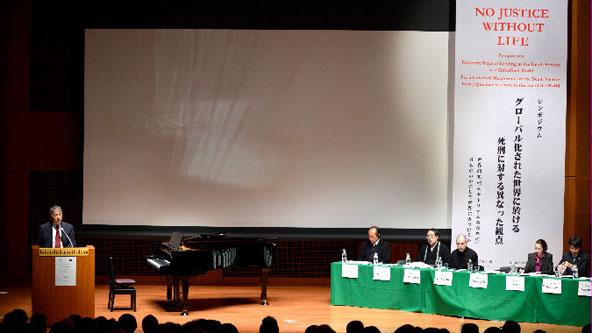
Article(s)
Japan’s death penalty under scrutiny
By The Advocates for Human Rights, on 5 November 2012
After a high-level conference on the abolition of the death penalty in Tokyo on October 29th, the United Nations’ Human Rights Council examined Japan’s record on October 31st as part of the Universal Periodic Review, a worldwide mechanism to monitor the enforcement of human rights. Major Japanese infringements concern the use of the death penalty.
2012
Clemency
Cruel, Inhuman and Degrading Treatment and Punishment
Death Row Conditions
Fair Trial
Intellectual Disability
Japan
Legal Representation
Mental Illness
Document(s)
STRENGTHENING THE DEFENCE IN DEATH PENALTY CASES IN THE PEOPLE´S REPUBLIC OF CHINA: Empirical Research into the Role of Defence Councils in Criminal Cases Eligible for the Death Penalty
By Hans Jörg Albrecht / Max Planck Institute for Foreign and International Criminal Law, on 1 January 2006
2006
Article
China
More details See the document
This project examines the role of defence councils in Chinese criminal proceedings that can end up with the imposition of the death penalty. It aims to review the problems defence lawyers face in such proceedings, the defence strategies they apply and to examine whether the assignment of a defence lawyer makes a difference in the outcome of a criminal trial. Moreover, the project explores what can and should be done to empower defence councils to effectively represent suspects and accused in death penalty eligible cases.The objective of the study is to shed light on the problems experienced by criminal defence councils when defending capital crime cases and to generate information on how death penalty cases are processed through the Chinese system of justice as well as the determinants of the outcomes death penalty eligible criminal cases.
- Document type Article
- Countries list China
- Themes list Legal Representation,

Article(s)
The 8th World Congress reaffirms the importance of gender-based discussions
By World Coalition Against the Death Penalty, on 16 December 2022
The 19th World Day Against the Death Penalty highlighted the intersectional discrimination that women face in the judicial process leading to the death penalty, making visible one facet of the links between the death penalty and gender discrimination.
2022
Gender
Article(s)
Global mobilisation against Iraq’s high-profile death sentences
on 4 December 2010
Several former associates of Saddam Hussein have been sentenced to death. The Iraqi President, NGOs and international diplomats are now fighting to save their lives.
2010
Clemency
Iraq
Iraq

Article(s)
Drug policy reform, harm reduction movement and the death penalty abolition movement have much in common
By Aurélie Plaçais, on 26 June 2019
As 26 June is “Support. Don’t Punish” Global Day of Action, the World Coalition shares some insight on the 2019 Harm Reduction International Conference which took place in Porto end of April.
2019
Drug Offenses
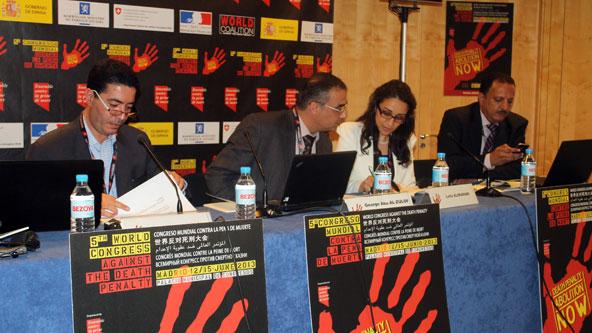
Article(s)
Small progress against the execution of minors
By Tiziana Trotta, on 14 June 2013
These are merely the very first steps down the road, but Iran, Sudan and Yemen, the only countries to apply the death penalty on juvelines along with Saudi Arabia, have just made some small progress on the issue.
2013
Iran (Islamic Republic of)
Juveniles
Sudan
Yemen
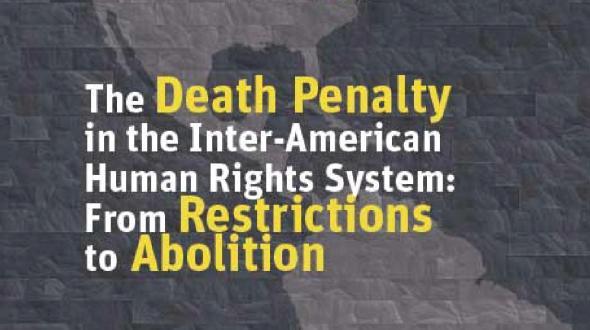
Article(s)
From restrictions to abolition
By World Coalition Against the Death Penalty, on 17 August 2012
The Inter-American Commission on Human Rights has published a new report and called for abolition of the death penalty.
2012
Antigua and Barbuda
Argentina
Bahamas
Barbados
Belize
Bolivia (Plurinational State of)
Brazil
Canada
Chile
Colombia
Costa Rica
Cuba
Dominica
Dominican Republic
Ecuador
El Salvador
Grenada
Guatemala
Guyana
Haiti
Honduras
Jamaica
Mexico
Nicaragua
Panama
Paraguay
Peru
Saint Kitts and Nevis
Saint Lucia
Saint Vincent and the Grenadines
Trinidad and Tobago
United States
Uruguay
Venezuela (Bolivarian Republic of)
Document(s)
The politics of increasing punitiveness and the rising populism in Japanese criminal justice policy
By Setsuo Miyazawa / Punishment and Society, on 1 January 2008
2008
Article
Japan
More details See the document
The purpose of this article is (1) to establish that increasing punitiveness characterizes criminal justice policies in Japan and (2) to explain this trend in terms of the penal populism promoted by crime victims and supporting politicians. This article first examines newspaper articles to illuminate the increasingly punitive character of recent criminal justice policies in Japan in terms of both legislation and judicial decisions. The next section discusses the main contributing factors behind this trend and its public acceptance. The next two sections discuss two related issues: the public’s subjective sense of security, and the lack of a role for empirical criminologists in criminal justice policy making in Japan. The concluding section compares the Japanese and Anglo-American situations and argues that the same penal populism seen in Anglo-American countries is rapidly rising in Japan, and that public distrust of government has ironically increased the state’s investigative, prosecutorial, and sentencing powers in Japan. This article closes with the conjecture that police, prosecutors, and judges are unlikely to relinquish their increased power in the event that they gain the public’s trust and equally unlikely in the event of a change of the ruling party.
- Document type Article
- Countries list Japan
- Themes list Networks,

Article(s)
The Sunny Center
By Jessica Corredor, on 30 July 2018
“Extraordinary things can happen to ordinary people and still be OK »The Sunny Center is a place like no other place in the world. Perched on the top of a hill, it is surrounded by lakes and hills that multiply as far as the eye can see. The landscape is breath-taking. But the landscape is nothing compared to the founders of the Sunny Center. Sunny Jacobs, 72, and Peter Pringle, soon 80, began welcoming innocent people into their homes in 2011.
2018
Death Row Conditions
Innocence
Ireland
Article(s)
Book: a victory on the road to abolition
on 19 January 2010
The Taiwan Alliance to End the Death Penalty has just published Staving off the Executioner, a book describing the Taiwanese abolitionist movement’s strategies, challenges and successes.
2010
Fair Trial
Legal Representation
Taiwan
Taiwan
Article(s)
Translations in Chinese
By World Coalition Against the Death Penalty, on 21 January 2013
The World Coalition Against the Death Penalty’s office in Paris, France, is currently calling for translation contributions in Chinese.
The objective is to award contracts for translation services for the publications of the World Coalition Against the Death Penalty for 30 months (mid 2013 – mid 2015).
2013

Article(s)
‘Sakineh’ campaign to culminate in worldwide protests
on 25 August 2010
What started as an effort to save an Iranian woman sentenced to death by stoning is turning into a global movement for human rights and against capital punishment.
2010
Cruel, Inhuman and Degrading Treatment and Punishment
Iran (Islamic Republic of)
Public Opinion

Article(s)
Lindy Lou Juror #2
By Clémentine Etienne, on 31 July 2018
On the occasion of the screening of the movie Lindy Lou Juror number 2 on Monday 25 June 2018, abolitionist associations such as Amnesty International, ACAT France, Together Against The Death Penalty French Collectif Free Mumia! and the World Coalition against the Death Penalty met at the Centre Wallonie Bruxelles in Paris.
2018
Public Opinion
United States

Article(s)
Bahrain: Joint appeal for commutation and moratorium
By Salam for Democracy and Human Rights, on 13 January 2022
Joint Appeal was published on World Day Against the Death Penlaty on 10 October 2021 and sent to the Bahraini Embassy in France, UK and Switzerland.
2022
Bahrain
Clemency
Moratorium
Document(s)
Leaflet – World Day 2024 & 2025
By World coalition against the death penalty, on 10 June 2024
2024
Campaigning
World Coalition
arfrMore details Download [ pdf - 1325 Ko ]
Every 10th October, the World Coalition Against the Death Penalty and abolitionist actors worldwide celebrate the World Day Against the Death Penalty. It is an occasion to highlight the progress achieved in the global campaign for the abolition of capital punishment. In 2024 and 2025, the World Day will serve as an opportunity to challenge […]
- Document type Campaigning / World Coalition
- Available languages كتيب - اليوم العالمي 2024 و 2025Brochure - Journée mondiale 2024 & 2025
Document(s)
INSECURITY REVEALED: Voices Against the Death Penalty
By World Coalition Against the Death Penalty, on 6 August 2024
2024
Campaigning
World Coalition
frMore details Download [ pdf - 1313 Ko ]
- Document type Campaigning / World Coalition
- Available languages L'INSÉCURITÉ RÉVÉLÉE : Voix contre la peine de mort
Document(s)
Leaflet – World Day 2022
By the World Coalition Against the Death Penalty, on 24 June 2022
2022
World Coalition
arfrMore details Download [ pdf - 1095 Ko ]
Leaflet for the 20th World Day against the death penalty (2022), on torture and the death penalty.
- Document type World Coalition
- Available languages للیوم العالمي لمناھضة عقوبة الإعدام كتيب باللغة العربيةBrochure - Journée mondiale 2022
Document(s)
Convicting the Innocent: Where Criminal Prosecutions Go Wrong
By Brandon L. Garrett / Harvard University Press, on 1 January 2011
2011
Book
United States
More details See the document
Very few crimes committed in the United States involve biological evidence that can be tested using DNA. Convicting the Innocent makes a powerful case for systemic reforms to improve the accuracy of all criminal cases.
- Document type Book
- Countries list United States
- Themes list Innocence,
Document(s)
Co-Sponsorship, Note Verbale, and Association Behaviour at the Unga: An Analysis of the Death Penalty Moratorium Resolutions
By Daniel Pascoe & Sangmin Bae, on 22 April 2021
2021
Academic report
Moratorium
More details See the document
Since December 2007, seven resolutions in favour of a universal moratorium on death penalty executions have been adopted by the UN General Assembly. In an earlier paper (Pascoe and Bae 2020) we examined UN member states’ voting patterns over these seven resolutions, asking why some countries vote in a manner seemingly contradictory to their domestic death penalty practices. With a slightly different focus, we now further explore idiosyncratic state behaviour, this time through an analysis of co-sponsorship and the note verbale of dissociation. Our assumption is that states which plan to vote ‘yes’ in the plenary will also co-sponsor the resolution beforehand. We also presume that states which vote ‘no’ in the plenary will sign the note verbale invariably circulated several months later, as a further means of condemnation.
However, when it comes to the moratorium resolutions, not all member states fit into either of these binary categories. Many countries situate themselves in between the two groups of ‘genuine’ supporters and opponents. These countries in the middle evince inconsistency between their plenary votes and what we term their ‘association behaviour’ before or after the plenary, consisting of co-sponsorship and adherence to the note verbale. This paper analyses these groups of countries to determine the underlying causes for their ambivalent, or even contradictory, positions concerning the moratorium resolutions. The findings of this research stand to enrich not only the academic literature on international organizations, but also to inform the campaigning efforts of abolitionist UN member states and non-governmental organizations.
- Document type Academic report
- Themes list Moratorium
Document(s)
Caught in a Web Treatment of Pakistanis in the Saudi Criminal Justice System
By Human Rights Watch / Justice Project Pakistan, on 8 September 2020
2020
NGO report
Pakistan
More details See the document
Report about the treatment of Pakistanis in the Saudi criminal justice system
- Document type NGO report
- Countries list Pakistan
- Themes list Discrimination, Foreign Nationals,
Document(s)
Identifying and (Re)formulating Prophylactic Rules, Safe Harbors, and Incidental Rights in Constitutional Criminal Procedure
By Susan R. Klein / Michigan Law Review, on 1 January 2001
2001
Article
United States
More details See the document
The Miranda conundrum runs something like this: If the Miranda decision represents true constitutional interpretation, and all unwarned statements taken during custodial interrogation are compelled” within the meaning of the self-incrimination clause, the impeachment and “”fruits”” exceptions to Miranda should fall. If it is not true constitutional interpretation, than the Court has no business reversing state criminal convictions for its violation. I offer here what I hope is a satisfying answer to this conundrum, on both descriptive and normative levels, that justifies not only Miranda but a host of similar Warren, Burger, and Rehnquist Court decisions as well. In Part I, I introduce and define the terms “”constitutional prophylactic rule,”” “”constitutional safe harbor rule,”” and “”constitutional incidental right,”” and attempt to legitimate their use. I further demonstrate that constitutional criminal procedure is so flush with such prophylactic and safe harbor rules and incidental rights that trying to eliminate them now, by either reversing a large number of criminal procedure cases or “”constitutionalizing”” all of those holdings, would do more harm than good. I propose that we accept the fact that these rules and rights are a fixed part of our constitutional landscape, and focus instead on minimizing their risks and maximizing their benefits”
- Document type Article
- Countries list United States
- Themes list Fair Trial,
Document(s)
The Advocacy Handbook: A Guide to Implementing Recommendations of the Criminal Justice/Mental Health Consensus Project
By Council of State Governments Justice Center, on 1 January 2006
2006
Campaigning
More details See the document
A how-to guide for advocates who want to improve the response to people with mental illnesses who are in contact with the criminal justice system. The Advocacy Handbook reflects a shared effort among NAMI (the National Alliance for the Mentally Ill), the National Mental Health Association (NMHA), the National Association of State Mental Health Program Directors (NASMHPD), the Bazelon Center for Mental Health Law, and the Criminal Justice / Mental Health Consensus Project.
- Document type Campaigning
- Themes list Networks,
Document(s)
The State of Criminal Justice 2012
By American Bar Association / Ronald Tabak, on 1 January 2012
2012
NGO report
More details See the document
The American Bar Association recently published The State of Criminal Justice 2012, an annual report that examines major issues, trends and significant changes in America’s criminal justice system.
- Document type NGO report
- Themes list Country/Regional profiles,
Document(s)
Portuguese : A PENA DE MORTE NA LEGISLAÇÃO CRIMINAL COMUM DO BRASIL -O CASO MOTTACOQUEIRO E SUA REPERCUSSÃO
By SÉRGIO DA COSTA FRANCO, on 8 September 2020
2020
Article
Brazil
More details See the document
Este artigo trata da pena de morte dentro da legislação criminal brasileira, analisando algumas sanções impostas no período colonial, por meio do Livro V das Ordenações Filipinas, bem como da legislação pertinente no Brasil Império, pelo Código Criminal de 1830 e suas reformas de 1832 e 1835. Por fim, discorre sobre o processo Motta Coqueiro e sua repercussão na sociedade, após decisão condenatória do réu, posteriormente provado inocente, com o intuito de acabar com este tipo de penalidade no Brasil.
- Document type Article
- Countries list Brazil
- Themes list Networks,
Document(s)
Legislative Expansion and Judicial Confusion: Uncertain Trajectories of the Death Penalty in India
By Anup Surendranath and Maulshree Pathak, on 1 September 2022
2022
Academic report
India
More details See the document
The numbers and the politics of the death penalty in India tell very different stories, presenting complicated narratives for its future. The public reaction to instances of sexual violence and other offences over the last decade and the consequent political response has significantly strengthened the retention and expansion of the death penalty. This is reflected from the fact that that of all the death sentences that district courts impose, only about 5 percent get confirmed in India’s appellate system. However, does this mean there is growing scepticism about the death penalty in the Supreme Court of India? Unfortunately, the answer is far from simple. An assessment of the death penalty in India’s appellate courts during the last decade will demonstrate that a crime-centric approach has hindered any principled discomfort with the death penalty or the manner of its administration. In particular, the Supreme Court has faltered in high-profile death sentence cases (i.e., offences against the state and sexual violence cases), and its track record of commutations has very little to do with principled considerations on sentencing. This paper argues that the political and judicial imagination of the death penalty, as a necessary part of the response to crime, creates significant and unique challenges for the path towards abolition.
This article was first published in Crime Justice Journal: https://www.crimejusticejournal.com/issue/view/119
- Document type Academic report
- Countries list India
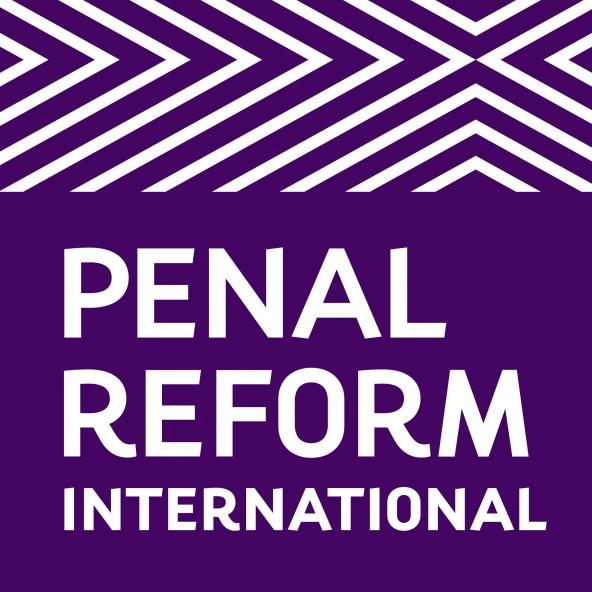
Member(s)
Penal Reform International (PRI)
on 30 April 2020
Penal Reform International (PRI) is an independent international non-governmental organisation that structures its work through a policy programme, regional programmes, and a governance and strategy programme that ensures learning and impact. Registered in The Netherlands (registration no 40025979), PRI operates globally with offices in multiple locations. We work to promote criminal justice systems that uphold […]
2020
United Kingdom
Document(s)
Detailed Factsheet
By World coalition against the death penalty , on 10 October 2011
2011
Campaigning
Trend Towards Abolition
frMore details Download [ pdf - 201 Ko ]
Detailed Factsheet 2019
- Document type Campaigning
- Themes list Trend Towards Abolition
- Available languages Fiche détaillée 2011

Member(s)
The American Constitution Society (ACS)
on 5 September 2022
The American Constitution Society (ACS) is a United States-based network of progressive lawyers, law students, judges, policymakers, legislators, and academics dedicated to realizing the promises of the U.S. Constitution by advancing and defending democracy, justice, equality, and liberty; securing a government that serves the public interest; and guarding against the abuse of law and the […]
2022
United States

Member(s)
Ensemble contre la peine de mort (ECPM)
on 30 April 2020
Since 2000, Together against the Death Penalty (Ensemble contre la peine de mort – ECPM) acts to fight against the death penalty around the world. The association promotes the universal abolition through the creation and dissemination of publications and teaching tools, as part of public campaigns and lobbies governments at both national and international levels. […]
2020
France

Member(s)
Lualua Center for Human Rights
on 30 April 2020
The objectives of Lualua Center for Human Rights are: 1- To contribute in the promotion of economic, social, cultural, environmental and civil growth according to the international declaration of human rights and subsequent relevant international conventions. 2- To work on achieving integrity and transparency and fighting corruption. To enshrine the concept of citizenship by promoting […]
Lebanon
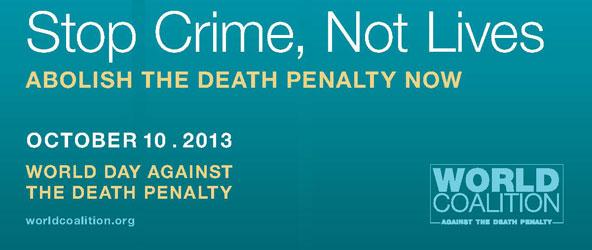
Article(s)
Calendar of events for World Day
By WCADP, on 10 September 2013
On 10 October 2013, the World Day Against the Death Penalty is focusing on the death penalty in the Greater Caribbean. Browse the schedule and the map to prepare and promote the events planned around the world on the big day.
2013
Cruel, Inhuman and Degrading Treatment and Punishment
Document(s)
Right Here, Right Now Life Stories from America’s Death Row
By Lynden Harris, on 10 August 2021
2021
Book
Death Row Conditions
United States
More details See the document
Upon receiving his execution date, one of the thousands of men living on death row in the United States had an epiphany: “All there ever is, is this moment. You, me, all of us, right here, right now, this minute, that’s love.”
Right Here, Right Now collects the powerful, first-person stories of dozens of men on death rows across the country. From childhood experiences living with poverty, hunger, and violence to mental illness and police misconduct to coming to terms with their executions, these men outline their struggle to maintain their connection to society and sustain the humanity that incarceration and its daily insults attempt to extinguish.
By offering their hopes, dreams, aspirations, fears, failures, and wounds, the men challenge us to reconsider whether our current justice system offers actual justice or simply perpetuates the social injustices that obscure our shared humanity.
- Document type Book
- Countries list United States
- Themes list Death Row Conditions
Document(s)
Worked to Death: A study on migrant workers and capital punishment
By Migrant Care and Reprieve, on 24 November 2021
2021
NGO report
Fair Trial
Indonesia
Legal Representation
Malaysia
Nigeria
Pakistan
Saudi Arabia
Women
More details See the document
Foreign nationals, and within this group migrant workers, are a population that disproportionately faces the death penalty around the world. The data and statistics gathered by Reprieve and Migrant CARE for this report show that migrant workers as a sub-set of the foreign national population are at grave risk of human rights violations related to the death penalty, including arbitrary deprivation of the right to life in the context of unlawful death sentences and executions.
This report focuses on: states that receive migrant workers (‘receiving states’), in particular the states that make up the Association of South East Asian Nations or ASEAN (‘South East Asian states’) and the Gulf Cooperation Council (‘Gulf states’), and on states from which migrant workers travel to work (‘sending states’).
- Document type NGO report
- Countries list Indonesia / Malaysia / Nigeria / Pakistan / Saudi Arabia
- Themes list Fair Trial / Legal Representation / Women
Document(s)
Sentenced to death without execution: Why capital punishment has not yet been abolished in the Eastern Caribbean and Barbados
By Death Penalty Project, on 1 January 2020
2020
NGO report
More details See the document
The report Sentenced to Death Without Execution, Why capital punishment has not yet been abolished in the Eastern Caribbean and Barbados, was published on 7 April 2020. It presents the views of opinion formers and was written by Roger Hood and Florence Seemungal with the assistance of Amaya Athill.Six independent nations in the Eastern Caribbean – Antigua and Barbuda, Dominica, Grenada, St Kitts and Nevis, St Lucia, and St Vincent and the Grenadines, all members of the Organisation of Eastern Caribbean States (OECS) – and Barbados, retain the death penalty for murder. Most of these countries have not executed anyone sentenced to death for at least ten years with the vast majority not carrying out an execution for more than twenty years.This independent empirical study, which presents the views of 100 ‘opinion formers’, drawn from the seven jurisdictions, aims to shed light on why these countries hang on to capital punishment and what are the barriers to the complete abolition of the death penalty in these nations. The respondents were asked about their knowledge of the use of capital punishment in their respective countries and the extent to which, and why, they either supported the policy of retaining the death penalty or were in favour of its abolition, as well as the factors, beliefs, and assumptions that appeared to account for their government’s unwillingness to embrace complete abolition.Key findings include:- Across these seven nations, 48 of the interviewees favoured retention of the death penalty (18 of them strongly) and 52 were in favour of its abolition (30 of them strongly) Of those who favoured retention of the death penalty, only a minority were committed to retaining it: only 10 of 48 interviewees said they would ‘strongly oppose an Act of Parliament to completely abolish the death penalty by definitely voting against it’. Respondents believed the best strategies to persuade their respective governments to embrace reform were: ‘through creating an influential civil society pressure group ‘Citizens Against the Death Penalty’; by ‘mounting a legal challenge to the constitutionality of the death penalty’; or by ‘persuading the government to establish a high-level commission to report on the subject’.
- Document type NGO report
- Themes list Legal Representation, Mandatory Death Penalty,
Document(s)
DPIC Special Report: The Innocence Epidemic
By Death Penalty Information Center, on 20 July 2022
2022
NGO report
Innocence
United States
More details See the document
A Death Penalty Information Center Analysis of 185 Death-Row Exonerations Shows Most Wrongful Convictions Are Not Merely Accidental.
- Document type NGO report
- Countries list United States
- Themes list Innocence
Document(s)
Philippines – Committee on the Elimination of Discrimination Against Women – Death Penalty – June 2022
on 21 July 2022
2022
NGO report
Philippines
Women
More details Download [ pdf - 443 Ko ]
The Government of the Philippines has taken commendable steps toward protecting and promoting the rights of women overseas Filipino workers (OFWs), but those workers remain vulnerable to exploitation and abuse, and when they come into conflict with the law in their host countries, their vulnerabilities are compounded by linguistic and legal barriers, as well as judicial systems which fail to account for the gendered context in which they allegedly committed criminal acts. The Government of the Philippines should do more to ensure protection of the rights of these women OFWs, particularly when they are at risk of being sentenced to death.
- Document type NGO report
- Countries list Philippines
- Themes list Women
Document(s)
Capital Punishment A Hazard to a Sustainable Criminal Justice System?
By Ashgate Publishing / Lill Scherdin, on 8 September 2020
2020
Book
More details See the document
This book questions whether the death penalty in and of itself is a hazard to a sustainable development of criminal justice. As most jurisdictions move away from the death penalty, some remain strongly committed to it, while others hold on to it but use it sparingly. This volume seeks to understand why, by examining the death penalty’s relationship to state governance in the past and present. It also examines how international, transnational and national forces intersect in order to understand the possibilities of future death penalty abolition.The chapters cover the USA – the only western democracy that still uses the death penalty – and Asia – the site of some 90 per cent of all executions. Also included are discussions of the death penalty in Islam and its practice in selected Muslim majority countries. There is also a comparative chapter departing from the response to the mass killings in Norway in 2011. Leading experts in law, criminology and human rights combine theory and empirical research to further our understanding of the relationships between ways of governance, the role of leadership and the death penalty practices.
- Document type Book
- Themes list Due Process , International law, Trend Towards Abolition,
Document(s)
Roper and Race: the Nature and Effects of Death Penalty Exclusions for Juveniles and the “Late Adolescent Class”
By Craig Haney, Frank R. Baumgartner and Karen Steele, on 20 October 2022
2022
Academic report
United States
More details See the document
In Roper v. Simmons (2005), the US Supreme Court raised the minimum age at which someone could be subjected to capital punishment, ruling that no one under the age of 18 at the time of their crime could be sentenced to death. The present article discusses the legal context and rationale by which the Court established the current age-based limit on death penalty eligibility as well as the scientific basis for a recent American Psychological Association Resolution that recommended extending that limit to include members of the “late adolescent class” (i.e., persons from 18 to 20 years old). In addition, we present new data that address the little-discussed but important racial/ethnic implications of these age-based limits to capital punishment, both for the already established Roper exclusion and the APA-proposed exclusion for the late adolescent class. In fact, a much higher percentage of persons in the late adolescent class who were sentenced to death in the post-Roper era were non-White, suggesting that their age-based exclusion would help to remedy this problematic pattern.
- Document type Academic report
- Countries list United States
Document(s)
Impact of the World Coalition’s Strategic Plan 2018–2022
By World Coalition Agianst the Death Penalty, on 22 August 2023
2023
World Coalition
Trend Towards Abolition
frMore details Download [ pdf - 265 Ko ]
- Document type World Coalition
- Themes list Trend Towards Abolition
- Available languages Impact du Plan stratégique 2018-2022 de la Coalition Mondiale
Document(s)
Reforming Criminal Justice
By Arizona State University (ASU), on 1 January 2017
2017
Academic report
More details See the document
Reforming Criminal Justice is a four-volume report meant to enlighten reform efforts in the United States with the research and analysis of leading academics. Broken down into individual chapters—each authored by a top scholar in the relevant field—the report covers dozens of topics within the areas of criminalization, policing, pretrial and trial processes, punishment, incarceration, and release. The chapters seek to enhance both professional and public understanding of the subject matter, to facilitate an appreciation of the relevant scholarly literature and the need for reform, and to offer potential solutions. The ultimate goal is to increase the likelihood of success when worthwhile reforms are debated, put to a vote or otherwise considered for action, and implemented in the criminal justice system.
- Document type Academic report
- Themes list Due Process , Fair Trial, Legal Representation, Death Penalty,
Document(s)
Wrongful Convictions and the Culture of Denial in Japanese Criminal Justice
By David T. Johnson / The Asia-Pacific Journal, on 1 January 2015
2015
Article
Japan
More details See the document
The release of Hakamada Iwao from death row in March 2014 after 48 years of incarceration provides an opportunity to reflect on wrongful convictions in Japanese criminal justice. My approach is comparative because this problem cannot be understood without asking how Japan compares with other countries: to know only one country is to know no country well. Comparison with the United States is especially instructive because there have been many studies of wrongful conviction there and because the U.S. and Japan are the only two developed democracies that retain capital punishment and continue to carry out executions on a regular basis. On the surface, the United States seems to have a more serious problem with wrongful convictions than Japan, but this gap is more apparent than real. To reduce the problem of wrongful convictions in Japanese criminal justice, reformers must confront a culture of denial that makes it difficult for police, prosecutors, and judges to acknowledge their own mistakes.
- Document type Article
- Countries list Japan
- Themes list Fair Trial, Innocence,

Member(s)
Citizens United for Rehabilitation of Errants (CURE)
on 30 April 2020
Citizens United for Rehabilitation of Errants (CURE) is a grassroots organization that was founded in Texas in 1972. It became a national organization in 1985. CURE believes that prisons should be used only for those who absolutely must be incarcerated and that those who are incarcerated should have all of the resources they need to […]
2020
United States
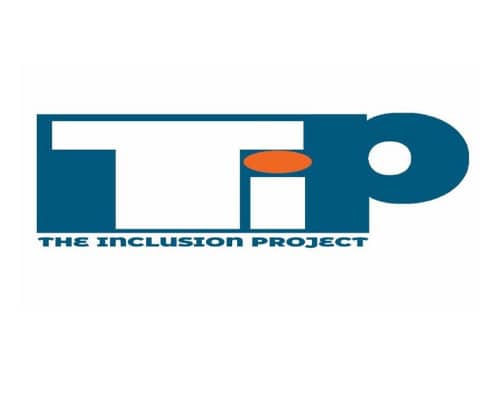
Member(s)
The Inclusion Project
on 13 September 2024
The Inclusion Project (TIP) is a legal services provider founded in 2019 and registered in Nigeria as The Inclusion Project.
2024
Nigeria
Document(s)
Cuba – Committee Against Torture – Death Penalty – March 2022
on 21 March 2022
2022
NGO report
World Coalition
Cruel, Inhuman and Degrading Treatment and Punishment
Cuba
More details Download [ pdf - 250 Ko ]
Cuba has maintained a de facto moratorium on the imposition of the death penalty since its last reported execution in 2003. In 2010, Cuba’s Supreme Court commuted the death sentence of Cuba’s last remaining death row inmate. As of the date of this report, there is no record of an individual currently sentenced to death. Although a de facto moratorium is in place, Cuba has not committed to a de jure abolition of the death penalty, citing national security concerns.
- Document type NGO report / World Coalition
- Countries list Cuba
- Themes list Cruel, Inhuman and Degrading Treatment and Punishment
Document(s)
2021 World Day Report
on 10 June 2022
2022
World Coalition
Women
frMore details Download [ pdf - 4154 Ko ]
On 10 October 2021, the World Coalition and abolitionists around the world celebrated the 19th World Day Against the Death Penalty (‘World Day’). Every year on World Day, the World Coalition highlights one problematic aspect of the Death Penalty. In 2021, the World Day explored the theme “Women sentenced to death, an invisible reality” to raise awareness on how the treatment of gender and gender-based inequalities create particularly precarious conditions for women sentenced to capital punishment. This report presents the activities organised for the 19th World Day and the media coverage it received.
- Document type World Coalition
- Themes list Women
- Available languages Rapport journée mondiale 2021

Article(s)
Burkina Faso has joined the global trend toward abolition of the death penalty in Africa
By International Federation of Human Rights (FIDH), on 6 June 2018
On 31 May, the Burkinabe Parliament abolished the death penalty by adopting a new criminal code that excludes it from the arsenal of sentences regardless of crimes considered and circumstances in which they were committed. Thus, Burkina Faso become the 144th States in the World and the 40th African State abolitionist in law and in practice. Our organizations welcome this major step which strengthens the Burkinabe legal framework for the protection of human rights and is part of regional and international movement in favour of the abolition of this inhuman, ineffective and irreversible punishment.
2018
Burkina Faso
Document(s)
Facts and Figures 2010
By World Day against the death penalty , on 10 October 2010
2010
Campaigning
Trend Towards Abolition
frMore details Download [ pdf - 81 Ko ]
Facts and Figures 2010
- Document type Campaigning
- Themes list Trend Towards Abolition
- Available languages Faits et chiffres 2010
Document(s)
How Families of Murder Victims Feel Following the Execution of Their Loved One’s Murderer: A Content Analysis of Newspaper Reports of Executions from 2006-2011
By Journal of Qualitative Criminal Justice and Criminology, on 1 January 2013
2013
Working with...
More details See the document
By Corey Burton and Richard Tewksbury
- Document type Working with...
- Themes list Public debate, Murder Victims' Families, Death Penalty, Country/Regional profiles,
Document(s)
Drug-related Offences, Criminal Justice Responses and the Use of the Death Penalty in South-East Asia
By Office of the United Nations High Commissioner for Human Rights, on 1 January 2019
2019
International law - United Nations
More details See the document
Most of the world’s countries or territories have either abolished the death penalty or no longer use it. More than half of those that retain the death penalty, of which many are in South-East Asia, do so for drug-related offences. Most prisoners on death row in South-East Asia have been convicted of drug-related offences, although law and practice vary considerably among countries that retain the death penalty.
- Document type International law - United Nations
- Themes list Death Penalty, Statistics,
Document(s)
The Dark At the Top of the Stairs: Four Destructive Influences of Capital Punishment on American Criminal Justice
By David T. Johnson / Franklin Zimring / Social Science Research Network , on 1 January 2011
2011
Academic report
More details See the document
Executionhas also (1) had a powerful negative influence on the substantive criminal law; (2) promoted the practice of using extreme penal sanctions as status rewards to crime victims and their families; (3) provided moral camouflage for a penalty of life imprisonment without possibility of parole, which is almost as brutal as state killing; and (4) diverted legal andjudicial resources from the scrutiny of other punishments and governmental practicesin an era of mass imprisonment. This chapter discusses these four latent impacts of attempts to revive and rationalize the death penalty in the United States.
- Document type Academic report
- Themes list Arbitrariness,
Document(s)
Muzzling critical voices: Politicized trials before Saudi Arabia’s Specialized Criminal Court
By Amnesty International, on 8 September 2020
2020
NGO report
Saudi Arabia
aresarfrMore details See the document
Despite the Saudi Arabian authorities’ rhetoric about reforms, they have unleashed an intense crackdown on citizens promoting change in the last few years. One of the instruments of that repression has been the Specialized Criminal Court (SCC), which was set up in 2008 to try individuals accused of terror-related crimes. Amnesty International has documented the cases of 95 individuals who were tried before the SCC between 2011 and 2019. It has concluded that the SCC’s judges have presided over grossly unfair trials, handing down prison sentences of up to 30 years and numerous death sentences, in an effort to silence dissent.
- Document type NGO report
- Countries list Saudi Arabia
- Themes list Country/Regional profiles, Terrorism,
- Available languages AR Muzzling critical voicesArabia Saudí: Silenciar las voces críticas: Juicios politizados ante el Tribunal Penal Especializado de Arabia Saudí - Resumen ejecutivo y conclusionesتكميم الأفواه المعارِضة: محاكمات مسيّسة أمام المحكمة الجزائية المتخصصة في السعوديةArabie Saoudite: Reduire les voix critiques au silence: Des proces politises devant le Tribunal penal special en Arabie Saoudite
Document(s)
The State of Criminal Justice 2011
By American Bar Association / Ronald Tabak, on 1 January 2011
2011
NGO report
More details See the document
The State of Criminal Justice 2011 contains a chapter on death penalty by Ronald Tabak (Ch. 19). Tabak explores legislative changes, the declining use of the death penalty, important Supreme Court decisions and the adequacy of representation.
- Document type NGO report
Document(s)
United Nations Principles and Guidelines on Access to Legal Aid in Criminal Justice Systems
By Economic and Social Council, on 1 January 2012
2012
United Nations report
enarrufresMore details See the document
Resolution adopted by the Economic and Social Council [on the recommendation of the Commission on Crime Prevention and Criminal Justice (E/2012/30 and Corr.1 and 2)]
- Document type United Nations report
- Themes list International law,
- Available languages Japanese : 联合国关于在刑事司法系统中获得法律援助机会的 原则和准则"مبادئ الأمم المتحدة وتوجيهاا بشأن سبل الحصول على /٢٠١٢ المساعدة القانونية في نظم العدالة الجنائية"Принципы и руководящие положения Организации Объединенных Наций, касающиеся доступа к юридической помощи в системах уголовного правосудияPrincipes et lignes directrices des Nations Unies sur l’accès à l’assistance juridique dans le système de justice pénalePrincipios y directrices de las Naciones Unidas sobre el acceso a la asistencia jurídica en los sistemas de justicia penal
Document(s)
Palestine – Committee Against Torture – Death Penalty – June 2022
on 21 July 2022
2022
NGO report
World Coalition
State of Palestine
More details Download [ pdf - 1747 Ko ]
The State of Palestine on 1 April 2014 ratified the Convention against Torture and Other Cruel, Inhuman or Degrading Treatment or Punishment. On 28 December 2017, the State of Palestine signed the Optional Protocol to the Convention against Torture and Other Cruel, Inhuman or Degrading Treatment or Punishment. On 18 March 2019, the State of Palestine also ratified the Second Optional Protocol to the International Covenant on Civil and Political Rights (ICCPR), which aims to abolish the death penalty. The State of Palestine has not yet abolished the death penalty. Indeed-as described herein-the 14 June 2007 split in power between the Palestinian Authority in Ramallah in the West Bank under President Abbas, and the Hamas movement in Gaza, has been followed by many documented executions in Gaza without the requisite signature of President Abbas, and Gazan military courts conduct trials of civilians, where they can be sentenced to death.
This report considers the prevalence of torture and other issues ancillary to the death penalty itself: confessions under torture or degrading treatment, due process, access to legal counsel, death-row conditions, and methods of execution.
- Document type NGO report / World Coalition
- Countries list State of Palestine
Document(s)
Detailed Factsheet 2010
By World Coalition against the death penalty , on 10 October 2010
2010
Campaigning
Trend Towards Abolition
frMore details Download [ pdf - 479 Ko ]
Detailed Factsheet 2010
- Document type Campaigning
- Themes list Trend Towards Abolition
- Available languages Fiche détaillée 2010
Member(s)
Coordination Eveil et cause pour l’Unité nationale et la lutte contre l’esclavage
on 30 April 2020
The Coordination Eveil et cause pour l’Unité nationale et la lutte contre l’eclavage is a non-governmental organization focused on the fight against slavery and its aftereffects. Created on 22 February 2012, it promotes a culture of Human rights and strenghten the national unity and and the bonds of love and brotherhood between every part of […]
2020
Mauritania
Article(s)
World Coalition calls on Canada to keep up its efforts against the death penalty
on 10 March 2009
The World Coalition has sent a letter to Canadian Prime Minister Stephen Harper, asking him to “protect its nationals sentenced to death abroad, whether it is in a democratic country or not”.
2009
Canada
Canada
Clemency
United States
Document(s)
Executing the Insane Is Against the Law of the Land. So Why Do We Keep Doing It?
By Stephanie Mencimer / Mother Jones, on 1 January 2015
2015
Article
United States
More details See the document
A recent article in Mother Jones examines lingering questions in the determination of which inmates are exempt from execution because of mental incompetency. In 1986, the U.S. Supreme Court ruled in Ford v. Wainwright that a person could not be executed if he or she was “unaware of the punishment they’re about to suffer and why they are to suffer it.” The 2007 ruling in Panetti v. Quarterman updated that decision, with Justice Anthony Kennedy writing, “A prisoner’s awareness of the State’s rationale for an execution is not the same as a rational understanding of it.” Scott Panetti (pictured), the inmate involved in the 2007 case, knew that the state of Texas planned to execute him for the murder of his in-laws, but also sincerely believed that he was at the center of a struggle between God and Satan and was being executed to stop him from preaching the Gospel.
- Document type Article
- Countries list United States
- Themes list Intellectual Disability,
Document(s)
The war on drugs, forensic science and the death penalty in the Philippines
By Maria Corazon A.De Ungria and Jose M.Jose, on 10 August 2021
2021
Academic report
Drug Offenses
Philippines
More details See the document
The effectiveness of the death penalty to deter heinous crimes remains a contentious issue even though it has been abolished in many countries. Three years into President Rodrigo Duterte’s administration, the push to re-impose the death penalty is being taken seriously.
There is urgency in providing options to the drug problem other than killing drug suspects in the streets or sentencing them to death. The drug problem is a complex issue and exposes the human vulnerability of its users for criminal exploitation.
We propose here that addressing these vulnerabilities in a balanced and comprehensive manner through health-focused, rights-based criminal justice responses, conducting forensic science-based drug investigations and determining the social causes of drug abuse is an alternative solution that demands cooperation across different sectors of society as well as underscores the fundamental value of human life.
- Document type Academic report
- Countries list Philippines
- Themes list Drug Offenses

Article(s)
If I do not accept that a terrorist kills me, I do not accept either to kill a terrorist
By Tiziana Trotta, on 18 October 2016
Khachig Ghosn is a 22-year-old student of social work at the Lebanese University. Three years ago, he witnessed an explosion in Beirut. Despite this dramatic experience, he is against the use of the death penalty and he is convinced that capital executions have no deterrent effect on terrorism.Ghosn is aware that changes in his country take a very long time, but he has a positive long-term vision and hopes that the death penalty will be abolished.
2016
Lebanon
Murder Victims' Families
Terrorism
Article(s)
Jamaica vote illustrates retentionist trend in the Caribbean
on 9 January 2009
Jamaican lawmakers voted to keep capital punishment and the government seems determined to use it. Caribbean abolitionists are battling similar moves across the region.
2009
Jamaica
Public Opinion
Saint Kitts and Nevis

Article(s)
Belarus ends more than one year without execution
By Daria Gribanova, on 14 April 2014
Despite an execution this month, Amnesty International’s latest annual report on the death penalty shows Belarus did not kill any prisoner last year, meaning Europe and Central Asia was execution-free for the first time since 2009. This achievement bolsters local abolitionists – despite the risks they face in their activism.
2014
Belarus
Belarus
Moratorium

Article(s)
Sentenced to death without execution: Why capital punishment has not yet been abolished in the Eastern Caribbean and Barbados
By The death penalty project, on 4 May 2020
Roger Hood and Florence Seemungal with the assistance of Amaya Athill, published a empirical study aims to shed light on why Eastern Caribbean States and Barbados hang on to capital punishment even though they haven’t carried out any executions in the last ten years.
2020
Barbados
Document(s)
Death Penalty in Liberia. When will it be abolished?
By FIACAT, on 1 January 2019
2019
Arguments against the death penalty
More details See the document
The FIACAT and ACAT Liberia organized an awareness-raisingworkshop on 17 and 18 September 2019 in Monrovia (Liberia) for 30 participants: Muslim and Christian religious leaders, traditional chiefs, members of civil society organizations, journalists, members of the Independent National Commissionon Human Rights (INCHR) and parliamentarians. This workshop resulted in the production of this publication to raise awareness among opinion leaders on the abolition of the death penalty in Liberia, considering the specific characteristicsand needs of the country.
- Document type Arguments against the death penalty
Document(s)
Living with a Death Sentence in Kenya: Prisoners’ Experiences of Crime, Punishment and Death Row
By Carolyn Hoyle and Lucrezia Rizzelli, on 24 January 2023
2023
Book
Kenya
More details See the document
The Death Penalty Project’s latest report provides a comprehensive analysis of the lives of prisoners on death row in Kenya. It focuses on prisoners’ socio-economic backgrounds and profiles, their pathways to, and motivation for, offending, as well as their experiences of the criminal justice process and of imprisonment. It complements our previous research, a two-part study of attitudes towards the death penalty in Kenya, The Death Penalty in Kenya: A Punishment that has Died Out in Practice.
While 120 countries around the world have now abolished the death penalty, including 25 in Africa, Kenya is one of 22 African nations that continues to retain the death penalty in law, albeit it has not carried out any executions for more than three decades. As such, Kenya is classified as ‘abolitionist de facto’, the United Nations term for a country that has not carried out an execution for at least 10 years. Yet, while state-sanctioned executions no longer occur, hundreds of people are currently living under sentence of death and others are convicted and sentenced to death each year. As long as the death penalty is retained in law, there remains a risk that executions might resume if there is political change. Moreover, the plight and turmoil of those languishing on death row – consistently the poorest and most vulnerable – cannot be ignored. They are disproportionately sentenced to death and suffer the harshest punishments and treatment.
- Document type Book
- Countries list Kenya
PHIL_2_page_handout_EN
on 10 August 2021
2021
Document(s)
Facts and Figures 2009
By World Coalition against the death penalty , on 10 October 2009
2009
Campaigning
Trend Towards Abolition
frMore details Download [ pdf - 95 Ko ]
Facts and Figures 2009
- Document type Campaigning
- Themes list Trend Towards Abolition
- Available languages Faits et chiffres 2009
Document(s)
Poster World Day 2005
By World Coalition against the death penalty , on 10 October 2005
2005
Campaigning
Trend Towards Abolition
frMore details Download [ pdf - 46 Ko ]
To date, 12 African countries have abolished the death penalty for all crimes;
20 retain the death penalty but are no longer carrying out executions; and 21 retain and use
the death penalty. The World Coalition against the death penalty has decided to devote the
World Day 2005 to a campaign to encourage all African countries to abolish capital
punishment permanently.
- Document type Campaigning
- Themes list Trend Towards Abolition
- Available languages Affiche journée mondiale 2005
Document(s)
Facts and Figures 2011
By World Coalition against the death penalty , on 10 October 2011
2011
Campaigning
Trend Towards Abolition
frMore details Download [ pdf - 100 Ko ]
Facts and Figures 2011
- Document type Campaigning
- Themes list Trend Towards Abolition
- Available languages Faits et chiffres 2011

